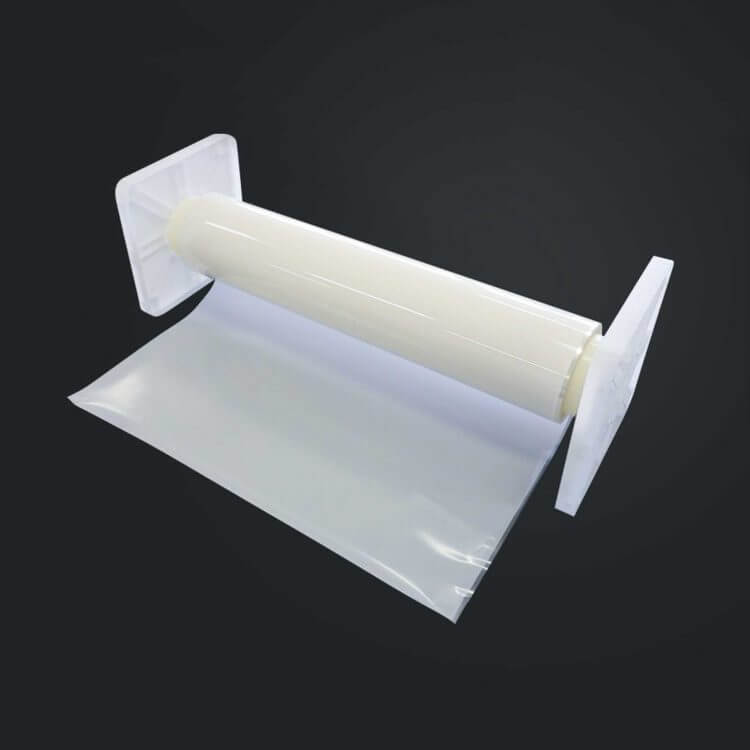In the 1970’s, Ajinomoto began exploring other applications for our amino acid technologies outside of umami seasoning. We knew that some of these substances had excellent material properties and could potentially be used for resins and coating agents for the electronics industry. Processors were getting smaller and faster, and printed circuit board makers needed better insulating materials to support performance. Ink was the preferred substrate but applying and drying it slowed production, attracted impurities, and created byproducts that were harmful to the environment.
In 1996 a CPU maker approached the Group about developing a film-type insulator using amino acid technology. The moment we had been waiting for had arrived.


Ajinomoto Build-Up Film™
The effort was led by an up-and-coming researcher named Shigeo Nakamura who had a background in materials used for insulating electronic circuit boards. At first, his team struggled to find the right material that would supply both strength and flexibility. “Being young and naive,” says Nakamura, “I chose a resin requiring deep refrigeration.” Though his gamble paid off, the next big hurdle was finding a machine to laminate the new resin film onto the substrate. In this, too, Nakamura was successful, though it meant giving up his weekends to visit the machine’s manufacturer to repeatedly test the process. “It’s like sprinting a marathon,” he says, “you just have to keep going.” In the end, the revolutionary new material, Ajinomoto Build-up Film™, was perfected in just four months. Nakamura credits his team’s success to perseverance, timing and above all the unique talents of each member. “As a researcher, you can’t be satisfied with incremental improvements.”
As an industry outsider, the Group faced challenges gaining acceptance for its new product. Fortunately, it was a time of upheaval in the CPU industry, with the shift from ceramic to plastic casings. In 1999 a supplier to a leading semiconductor company gave Nakamura an introduction to the largest CPU maker. He seized the opportunity. Ajinomoto Build-up Film has led the market ever since. When the new film was adopted, Nakamura assumed it might stay in production for 10 years — it has now been over 20 and Ajinomoto Build-up Film is still going strong.
In computers, mobile devices, 5G communications, autonomous vehicles, cloud services, IoT devices, or wherever advanced electronics are transforming our world, Ajinomoto Build-up Film is still a critical ingredient. Just another way our pioneering spirit is helping you and your devices stay connected to the world.


